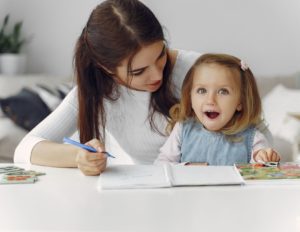As we contemplate the effects of losing 10 weeks or so of school, John Hattie reminds us that “It is not the time in class, but what we do in the time we have, that matters”. In a current post, Visible Learning Effect Sizes When Schools Are Closed: What Matters and What Does Not, Hattie notes:
- Do not panic
- Worry more about subjects in which parents have the least skill
- Engage students in optimal tasks designed to find out where students are and where they need to go in their learning
- Create many opportunities for social interaction
- Listen to feedback from students about their learning
View the full post to learn more about, “What Matters and What Does Not.” https://corwin-connect.com/2020/04/visible-learning-effect-sizes-when-schools-are-closed-what-matters-and-what-does-not/

 “School psychologists know that academic efforts cannot proceed without addressing psychological and emotional trauma. Learning will not occur unless the emotional needs of both students and adults are addressed. Indeed, pretending that everything is 'normal' will likely exacerbate underlying traumas and further delay genuine recovery.”
“School psychologists know that academic efforts cannot proceed without addressing psychological and emotional trauma. Learning will not occur unless the emotional needs of both students and adults are addressed. Indeed, pretending that everything is 'normal' will likely exacerbate underlying traumas and further delay genuine recovery.”


